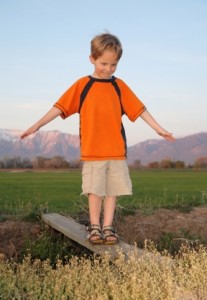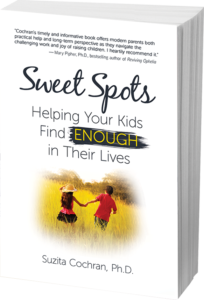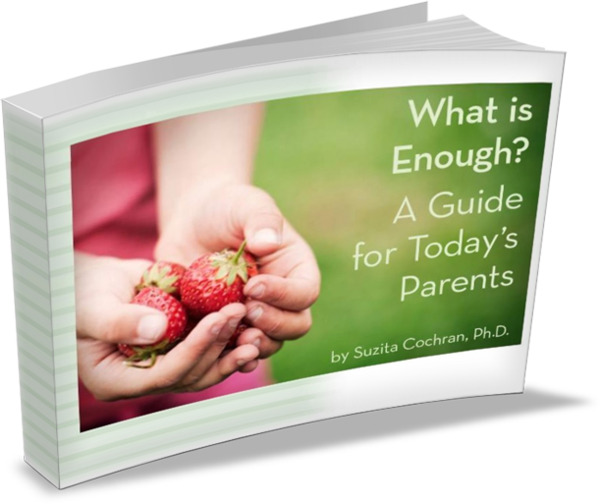 One summer when my sons were 2 and 4, my sister, Heather, came to visit. At that time we lived in a small apartment near the university. Due to the size of our home and the wattage of our children’s energy, we spent much of our time outside, frequently at local parks and playgrounds. Even in the heart of winter.
One summer when my sons were 2 and 4, my sister, Heather, came to visit. At that time we lived in a small apartment near the university. Due to the size of our home and the wattage of our children’s energy, we spent much of our time outside, frequently at local parks and playgrounds. Even in the heart of winter.
Not yet a parent herself, Heather may not have realized just how many playground outings she was to take part in on this visit. In the end it was unclear whether she still considered her time with us a vacation, though I’m sure it felt good to go back to her own peaceful home.
We were returning from one of these outings early in Heather’s stay when I found myself strategizing aloud. “Heather, when we get inside, you take Stephen and I’ll cover Daniel. If we don’t they’ll start poking and shoving before we know it.”
“But,” Heather pleaded looking a bit worn out from the running games she’d played with the boys in our dry, high-altitude climate, “won’t they be tired from playing and less likely to fight?”
“One would think so. I used to think so,” I responded. “And if there was justice in the world this would indeed be the case. Yet these small beings defy logic. Instead of arriving calmly at their familiar residence, the transition back home brings out the worst in them. So get ready,” I added.
At about this time in my kids’ lives, I’d begun to find scraps of energy for skimming the various parenting books I’d amassed. Many of the books mentioned children’s struggles with transitions. The teachers at my kids’ preschool gave similarly sage advice about transition times.
I began to notice the many transitions in my children’s days. What made these times so challenging for my kids?
There were the small, daily transitions – waking up in the morning, coming home from the park, joining the family for dinner. And the larger ones – ending the school year, starting a new musical instrument or class, spending time with grandparents on vacation.
During transitions we hover between two places, one foot awkwardly balanced in each space. The ground on which we stand is uneven. No wonder transitions make us feel unsteady. During transition times we no longer have our daily structures to support us. Our time and space feel wide open. We have too many options available to us.
Because transitions can be unsettling, we often subconsciously reach for something familiar. Or if we’re under 10, we may jab a brother as a way to regain some control over the uncomfortable moment.
I soon noticed it wasn’t merely my kids who struggled with transition times. As the haze of early parenthood lifted, I saw I had my own trials during transitions.
Take the yearly event that’s come around once again – the end-of-school transition to summer. During those first school-less weeks while my kids were experiencing peaks in sibling rivalry and bickering, I was in the same room cycling between day dreams and anxiety. When I wasn’t engaged in those ever-so-useful activities, I noticed I was eating more than usual whether hungry or not.
My kids are older now. I’ve experienced the end-of-school transition for nearly a decade. You’d think I’d be better at it! Instead it’s become one of those skills you start to learn again and again, but never advance beyond Level 1. In my life this includes learning to play tennis, bake bread, and knit.
I was feeling bad about my inability to smoothly navigate the regular transitions in my life when I came across Sam Anderson’s recent article on Stupid Video Games. He suggests that the recent spate of iPhone-specific games (such as Angry Birds) are designed to be played during those numerous transition times that populate our days.
Anderson explains, “we play them incidentally, ambivalently, compulsively, almost accidentally. They’re less an activity in our day than a blank space in our day, less a pursuit than a distraction from other pursuits.”
While I’ve been handling transitions by overeating, spacing out, and adding to my list of indiscriminate worries, Sam Anderson admits he’s been:
playing when I should have been doing dishes, bathing my children, conversing with relatives, reading the newspaper, and especially writing. The game[s] were an anesthetic, an escape pod, a snorkel, a Xanax, a dental hygenist with whom to exchange soothingly meaningless banter before going under the pneumatic drill of Life.
Suddenly I felt a little better.
We humans, no matter how free-spirited, like some structure and consistency in our lives. For a child this may take the form of a toy or blanket that provides magic soothing when needed. For we grown-ups our trusty iPhones can bestow similar magic powers during unstructured, uncomfortable moments.
So instead of attempting to quietly master transitions and imply that others should do the same, I now point them out to my kids. Together we’ve generated a list of actions that make the larger transitions smoother – exercise, patience, play time with friends, reading a good book, watching a movie.
Lately my goal is to help my kids learn to notice and predict transitions, along with their accompanying challenges, and at least be aware of healthy ways to manage these times.
And if my kids take after their Mom, they’ll reach for these healthier tools perhaps half the time.
What are healthy ways you help your kids manage transitions?

 Sweet Spots: Helping Your Kids Find ENOUGH in Their Lives.
Sweet Spots: Helping Your Kids Find ENOUGH in Their Lives.


SOO true – I’ve tried to remember that even moving on from breakfast or lunch to another activity is such a mind shift, especially for kids. Or mom/dad coming home from work (mind shift for everyone). It seems planning ahead and discussing the “schedule” and/or just being ready for the inevitable bickering/wrestling that seem to come before a calm period begins are the best strategies for us.
This post is a godsend to me. I’ve never thought about it in terms of transitions before. I can never understand why my two children are angelic little creatures when they’re away from me, and when I bring them home they’re little devils. I get quite upset by it all and often wonder why I don’t get to see the good side to them as much as I’d like. But I suppose if I think about it, it’s the transition back home that must be doing it. This helps. It really does. Except I’m still slightly at a loss about what to do around these transitions. Lovely to come across your blog.
I’m glad this post was helpful to you! In terms of what to do, I do many of the things that Annie mentions in the previous comment. Try to plan ahead for the transition right before it happens. I often talk about what we’ll do when we get home in the car as we’re getting close to the house, for example. Sometimes at that time I ask the kids what they want to do when they get home. If they don’t have any ideas, I give them a choice between two options. Also like Annie suggested, sometimes talking about the daily schedule each morning can be helpful. But as your comment additionally suggested, for me just knowing that transition times can (will) be hard makes me less surprised and frustrated when they are.
I really like that acceptance of the fact that transitions are hard…like you wrote above, that in itself makes handling them less stressful. I’ve been reading a little about ACT (Acceptance and Commitment Therapy) lately, which perhaps you know about since it’s in your field, and I’ve really grasped onto the practice of letting feelings pass through without fighting them, in this case, the frustration and stress of transitions. Like you and Annie, I’ve done a schedule with my little guy for a while…we started when he was 2 with a visual schedule. I’ve sort of gotten away from it, but I notice when we’re on vacation somewhere and he’s out of sorts, that often all it takes is me quickly drawing up a schedule of what we’re going to do, and things progress just fine. It really is rather unfair to expect little kids to just bop from one thing to the next without knowing what’s coming or when they’ll be expected to leave. Thanks for this post and your guidance.
Your comment is a good reminder that little ones often respond well to visual reminders and schedules. I should have written that into my blog. Thanks for your thoughts.
I don’t know much about ACT, but I liked your description of it. Sounds like it has good lessons for adults and kids – not letting our emotions carry us away. (Lately I’m getting similar reminders in my yoga class.) It’s funny, the older I get the more I realize how many important life lessons/skills such as this one we can learn and practice in many arenas of our lives – sometimes in therapy, sometimes from wise parents (with grown children), sometimes in some form of religion, sometimes in yoga or martial arts, sometimes in art.
Thanks for your comment!